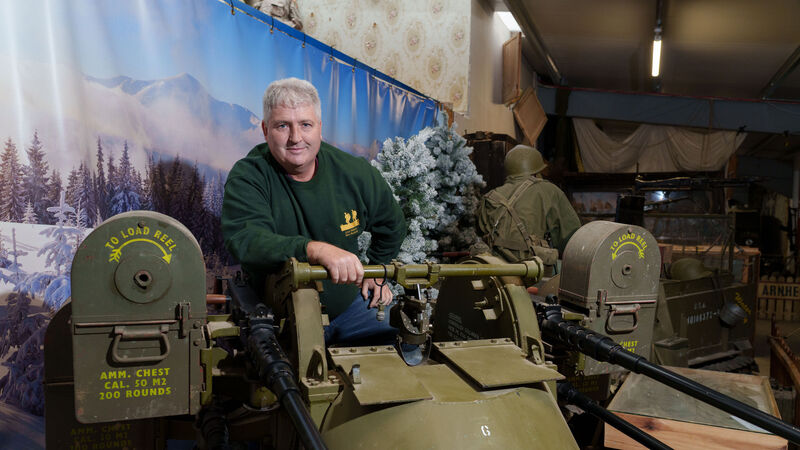My Life with William Sullivan: I turned my hobby into a museum

William Sullivan, founder of the Irish Military War Museum in Starinagh, Collon, Co Louth. Photo: Barry Cronin
At eight years old, I never could have predicted that a German Second World War gas mask I stumbled upon by chance might one day find its home in my very own museum.
It was the early ’80s and I had been spending my time picking potatoes in a bid to earn some much-needed pocket money. My grandad, who was a marksman, had gifted me a coin, and the hope was to turn this into a fully fledged military collection I could call my own.







